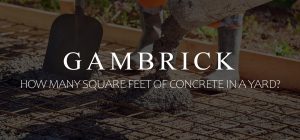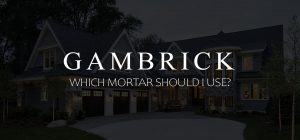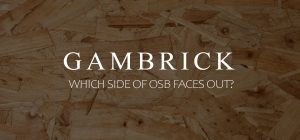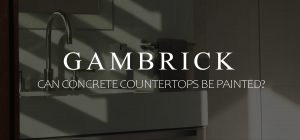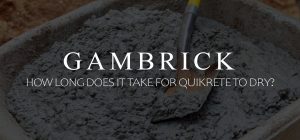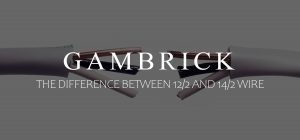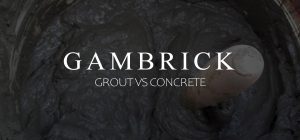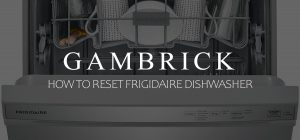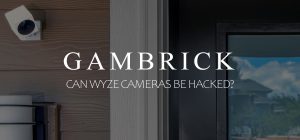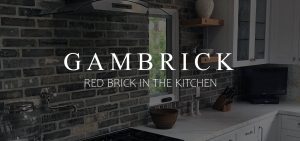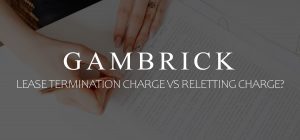
Benefits Of A Concrete Driveway
There are so many benefits of a concrete driveway it’s hard not to love them. Concrete is a very durable material and extremely strong. It can easily handle the weight of even the heaviest vehicles, and weather conditions aren’t an issue. If you live in the Northeast and see frigid Winters or in Southern Florida where it routinely hits 100+ degrees in summer, concrete can handle either extreme. It’s also a beautiful building material that has tons of style options like coloring, texturing, stamps and can be formed into any shape. It works with any style home and it’s cheaper than most other driveway materials other than asphalt, gravel or dirt.
Driveways need to be strong enough to hold all the cars placed atop them. In general, I like to pour my concrete driveways at least 5 to 6 inches thick with rebar reinforcement. This is thicker than the typical 4 inch concrete sidewalk or patio.
Concrete driveways are considered flatwork, which requires special masonry skills and tools to do right. If you decide to build one, make sure and hire a mason with experience pouring large flat slabs instead of doing block, brick, or stone work.
With all the benefits of concrete why wouldn’t everyone use it? Well, no driveway material is perfect and there are a few pros and cons to consider. Ahead we’ll look at all the benefits of a concrete driveway as well as some of the drawbacks.
What’s A Concrete Driveway Made Of?
Concrete is a mixture of a stone, water, lime and Portland cement. The cement is a pulverized powder made from limestone and clay. Concrete is a complicated mixture so it’s strength can vary depending on the mix. If you look at a building plan it’ll something like 3500 psi concrete required. That means 3500 pounds of strength per square inch. It’s very important to use the right mixture for your driveway. Generally we use a 3500 psi mix for a residential driveway at 4″ thick.
The size of the stone in your concrete mixture can be varied depending on the intended use of the concrete. For typical driveways the concrete is made with gravel sized stones about the size of a quarter. For finer work and a smoother finish smaller rocks and even sands can be used in place of the gravel.When you reduce the size and amount of the stone it also reduces the strength of the concrete.
The typical mixture used for a driveway slab is made from stones ranging in size from gravel to sand sized particles.
Other things can be added into the concrete mix like fibers, wire or rebar that are all designed to increase the slabs strength. You can also add in dye which completely changes the color of the concrete.
Texturing material can be thrown onto the slab as a thin top coat. This is done after it’s been smoothed but before the concrete hardens. The texture adds a sandy feel to the slab which can help it from feeling slippery when wet.

Two tone concrete driveway with darker grey stamped borders.
Increased Home Value
The design of your driveway and the material it’s made of has an impact on the home’s curb appeal and value. But are they worth the extra money when compared to cheaper options like gravel or asphalt?
In my opinion a concrete driveway is the best you can get. It’s considered a premium driveway material here in NJ. Asphalt looks cheap and needs repair way too often to be worth the money and gravel is worse. The loose stones always seem to need raking and get scattered everywhere. Concrete is super strong, looks great and is actually cheaper than pavers even though in my opinion it’s a much nicer option.
If your building or flipping a home that’s in the mid to high price range for your area then I consider a concrete driveway to be a must have. I only use tar or stones on a budget home and many times end up upgrading them to concrete later. Pavers are a nice option too but they tend to get weeds and I don’t like how busy they are. Concrete is a cleaner more modern look which is what most homes are going for these days.
If your building a Modern, Contemporary or Transitional style home I would definitely use concrete. A paver or stone edge looks nice if you want to dress it up a little and there are lots of shapes and designs you can choose from.Concrete is a very versatile driveway material.
In my opinion you really can;t go wrong with it and it’s definitely worth the money unless you have a home on the lower end of the market. But if your in the mid to high range then I recommend it. Around here even the oceanfront homes that cost 10 million + are using it.
Curb Appeal
A driveway is a major part of a home’s curb appeal. Many people don;t realize this but if your in the building or flipping market then you know how important a beautiful driveway is. Everyone driving by the home will see it and anyone visiting can park in it. A concrete driveway definitely adds to the curb appeal of your home.
Concrete is a clean and modern look. And because of all the different shapes and designs you can do it can be tailored to meet any style. It’s actually one of the most versatile driveway materials. And it looks really good when you add some mulch and landscaping around the concrete. Because the slabs are generally very large and the color is gray any landscaping or mulch around it really pops. Pavers are so busy and asphalt so dark then can detract from the landscaping but concrete doesn’t.
There are also lots of options for making concrete more decorative. You can add a whole range of colors, textures, and decorative finishes like stamping to make a concrete driveway really stand out. Adding these custom features can add even more uniqueness and personality to the exterior of your home. Although I like the look of natural concrete without any added coloring. I like to shape it into either square or rectangular slabs.
I prefer my driveways to be simple, clean and modern which are all things concrete provides and why I use it so often.
Low Maintenance
Even though concrete driveways can cost a little more than asphalt, the longevity and low maintenance are well worth the extra cost.
Many concrete driveways last 50 years without a single crack. It’s really up the installation quality and the base. If you build the driveway base properly and pour your concrete on solid flat ground then it’ll last. Also you need to make sure the driveway is thick enough and made from quality concrete with the correct psi. Most concrete driveways that crack do it because the sub base isn’t perfect or the concrete has an issue.
If you want a concrete driveway that lasts then I recommend you go an extra inch thick. 5″ is a lot more durable then 4″ and doesn’t cost that much more. The sub base and labor are basically the same. All you’ll need to do is pay a little extra for concrete.
Concrete driveways are virtually maintenance free, but it pays to keep them clean and sealed. A good scrubbing once in a while will keep them looking new. They won’t get damaged from being dirty so this is strictly for cosmetics.
Using a good concrete sealer will add a layer of extra protection. Sealer should be applied at least once a year. Here in the Northeast we seal our driveways in the fall to ensure that the slab will stand up to road salts and harsh winter weather. You don’t have to seal concrete for it to last but it helps a little and isn’t that expensive. Stay away from sealers that are shiny because any sheen takes away from the natural concrete look.

Beautiful concrete driveway with a grid pattern.
What Does a Concrete Driveway Cost?
A basic 4″ concrete driveway installed over a compacted 6″ gravel base by a professional mason will cost around $7 – $10 per square foot here in New Jersey. The national average is about $6 per square foot which means the cost of a 16 x 40 driveway is around $3850. Keep in mind the actual cost will vary based on the design and shape of the driveway. There are also relief cuts that need to be done which prevents cracks. Depending on where and how many you have effects the price.
Other factors are the thickness of the slab. We recommend at least a 5″. Wire mesh or rebar in the slab. Additives like fiber which strengthens the concrete. Coloring. Texture. And the design of the driveway.
Costs for an elaborate concrete driveway can easily be $20 per sq. ft.
You can also expect to pay more for any demolition and excavation work that needs to be done.
Another thing to consider is the edge. Many people leave the edge as plain concrete which means it needs to be thicker. We recommend a concrete edge of at least 8″. By making the edge extra thick it helps prevent cracks. Another very popular method is using pavers or stone as a border. Prices for this vary a lot based on the type of border material you use. These border stones should be cemented in place after the driveway is finished.
Concrete Driveways Are Very Versatile
One of the biggest benefits of a concrete driveway is how versatile the material is. When most of us thing of a concrete driveway we picture a big grey slab. But there are all sorts of finishing options and designs. These include grid patterns, texturing, colors, stamps and all sorts of borders and inlays.
Have you ever heard of a Modern permeable driveway. They’re made from slabs of concrete installed with grass sections in between. It’s a beautiful look that’s not done with any other type of material.
Concrete driveways are a great choice no matter what style home you have. Everything from the most traditional Colonial to an Ultra Modern home looks fantastic with concrete. Since there are so many styles to choose from it’s easy to tailor the design to fit the home.
Heated Concrete Driveway
Concrete is a great material when it comes to heat. It absorbs heat and releases it slowly.
Heated concrete driveways are warmed by a form of radiant floor heating meant for the outdoors. Tubes filled with hot water and an anti freeze solution or electric coils are installed under the driveway’s surface. When it gets cold enough, either hot water is pumped through the tubes or an electric current is sent into the coils which creates heat. That heat radiates upwards, warming the surface. Heated concrete driveways have a single purpose and that’s snow and ice removal. If you live anywhere cold enough to ice then you’ve probably spent countless hours each winter shoveling your driveway. You won’t have to do it any more if you install a heated concrete driveway.
Having to shovel your driveway every time it snows is back breaking work that can lead to injury. Snow blowers are expensive, they break down whenever you seam to need them most and spreading salt is a pain. Even if you don’t live in a region that gets hit with heavy snow, black ice in the early mornings can still be an issue. Snow-melting systems work by heating the driveway from underneath the surface, ensuring that snow and ice never stick to the pavement.
There are other driveway materials that work with a radiant system but concrete is the best. Since the entire driveway is basically a giant solid slab of thick concrete the surface gets warm without any gaps or voids. This design is great at melting ice.

Beautiful home featuring a textured pebble concrete driveway and stone border.
Pros & Cons Of A Concrete Driveway
Even though concrete is a fantastic driveway material there are still a few pros and cons to consider.
Pros
- Concrete is a relatively affordable option when you consider how long it lasts and how little maintenance it needs.
- It’s an extremely durable surface. When it’s built correctly with good quality materials a concrete driveway can easily last 50 years.
- Concrete driveways are very strong. As long as the base is done correctly a concrete driveway can easily handle any load without cracking.
- Concrete driveways are beautiful and work with any style home.
- They’re extremely versatile because of all the color and finishing options.
Cons
- Concrete stains easily from oil and other fluids which is bad news for a driveway. If you have an older car that leaks you may want to consider another material.
- It’s not an easy thing to fix. If you do get a crack then the only way to fix it is by replacing the entire section.
Benefits Of A Concrete Driveway Gallery
here’s a small gallery filled with some of my favorite concrete driveways. I’ll be adding more pictures in the future so check back.

Custom home with a textured concrete driveway and real stone border.

Ultra modern home with a concrete driveway formed in a grid pattern.

Beautiful shingle style home with a concrete driveway colored dark grey.

Ultra Modern home with a permeable concrete driveway.

Ultra Modern home featuring a permeable concrete driveway with grass grid.
Summary: Benefits Of A Concrete Driveway
Concrete has been one of the most popular driveway materials for decades and for very good reason. There are so many benefits of a concrete driveway it’s hard not to love them. Concrete is a very durable material and extremely strong. It can easily handle the weight of even the heaviest vehicle and weather conditions aren’t an issue. If you live in the Northeast and see frigid Winters or in Southern Florida where it routinely hits 100+ degrees in summer, concrete can handle either extreme. It’s also a beautiful building material that has tons of style options like coloring, texturing, stamps and a variety of designs. And it works with any style ranging from an old fashioned Colonial to an Ultra Modern home. Concrete is also cheaper than most other driveway materials other than tar, gravel or dirt.
If your choosing the material for your next driveway then you should definitely consider concrete.
If you have any questions or comments e-mail us any time. We’d love to hear from you.

John Mazzuca | About | More Posts |
Custom Home Builder
John Mazzuca is a custom home designer and builder at Gambrick with over 25 years experience in the construction industry. John has designed, built and/or remodeled hundreds of homes, small buildings, and commercial projects. He writes about business, real estate, home building, and household electronics. His work has been featured in Fox Business, Better Homes & Garden, House Beautiful, and more.
